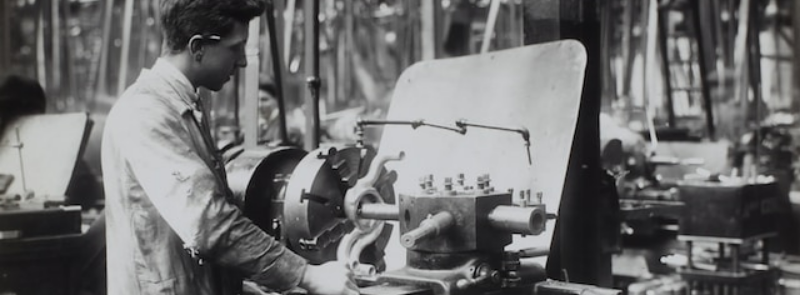
When It Occurs
Annually First Monday of September
Official Website
Timeline
Days Passed (538)
# Hashtags
#LaborDay #AmericanLaborMovement
Labor Day, a federal holiday in the United States, is observed on the first Monday of September. It serves as a tribute to the American labor movement and acknowledges the significant contributions and efforts of laborers to the growth and accomplishments of the nation.
The concept of dedicating a day to honor labor gained traction in the late 19th century as the trade union and labor movements expanded. Advocates for such a day, including the Central Labor Union and the Knights of Labor, organized the inaugural parade in New York City. Oregon led the way by officially declaring it a public holiday in 1887, becoming the first U.S. state to do so. By the time Labor Day achieved federal holiday status in 1894, thirty states had already embraced the celebration.
Origins and History
The history of Labor Day is rooted in the labor movement and the struggle for workers' rights:
- Origins of the Labor Movement: In the late 19th century, during the height of the Industrial Revolution, American workers faced harsh conditions, long hours, and low wages. Labor unions emerged to advocate for better working conditions, fair wages, and reasonable working hours.
- First Labor Day Parade: The first Labor Day parade took place on September 5, 1882, in New York City. Organized by the Central Labor Union, workers marched through the streets to demonstrate solidarity and promote the labor movement.
- Establishment as a Federal Holiday: The push for a national holiday to honor workers gained momentum. On June 28, 1894, President Grover Cleveland signed legislation making Labor Day a federal holiday to be observed on the first Monday in September.
The Significance of Labor Day
Labor Day holds special significance for several reasons:
- Recognition of Workers: The holiday acknowledges the contributions of American workers to the country's prosperity, productivity, and well-being.
- Labor Movement Legacy: It commemorates the achievements of the labor movement in securing workers' rights, including the eight-hour workday, safer working conditions, and the right to unionize.
- Transition to Autumn: Labor Day marks the unofficial end of summer and the beginning of the fall season. It is a time for final summer celebrations before the start of the school year and cooler weather.
Ways to Celebrate Labor Day
There are many enjoyable and meaningful ways to celebrate Labor Day:
- Attend Parades and Festivals: Many cities and towns host parades, festivals, and community events to celebrate Labor Day. These events often feature music, food, and activities for all ages.
- Host a Barbecue: Gather friends and family for a traditional Labor Day barbecue. Enjoy grilling, outdoor games, and spending time together.
- Take a Trip: Use the long weekend as an opportunity to take a short vacation or a day trip. Visit national parks, beaches, or other local attractions.
- Reflect on Labor History: Learn about the history of the labor movement and the contributions of workers' rights activists. Read books, watch documentaries, or attend educational events.
- Support Local Businesses: Shop at local businesses and farmers' markets to support your community. Many stores have Labor Day sales and special promotions.
- Relax and Unwind: Take advantage of the holiday to rest and recharge. Spend time doing activities you enjoy, such as reading, hiking, or simply relaxing at home.
- Participate in Volunteer Work: Give back to your community by participating in volunteer activities. Many organizations organize community service projects on Labor Day.
Fun Facts About Labor Day
- Labor Day in Other Countries: While Labor Day in the United States is celebrated in September, many countries around the world observe International Workers' Day or Labour Day on May 1st, known as May Day.
- Labor Day and Fashion: An old fashion rule advised against wearing white after Labor Day, signaling the end of the summer season. Although this rule is now largely considered outdated, it remains a cultural reference.
- Labor Day Weekend: The holiday is often associated with the final summer getaway, leading to heavy travel and traffic. Many people take advantage of the long weekend to go on trips or visit family.
Labor Day in Popular Culture
Labor Day has been depicted in various forms of popular culture, reflecting its significance and the traditions associated with it:
- Movies: Films like "Labor Day" (2013), based on the novel by Joyce Maynard, have used the holiday as a backdrop for their stories.
- Music: Songs and performances at Labor Day events often celebrate the contributions of workers and the spirit of the holiday.
- Television: Many TV shows feature special episodes or marathons during the Labor Day weekend, often focusing on themes of work, family, and celebration.
Conclusion
Labor Day is a celebration of the American worker and the labor movement’s contributions to the country’s social and economic progress. Whether you’re attending a parade, hosting a barbecue, learning about labor history, or simply enjoying a day off, Labor Day offers a time to reflect on the importance of workers and their role in shaping the nation. On the first Monday of September, take the opportunity to honor the spirit of labor, enjoy the final days of summer, and appreciate the value of hard work and solidarity.


